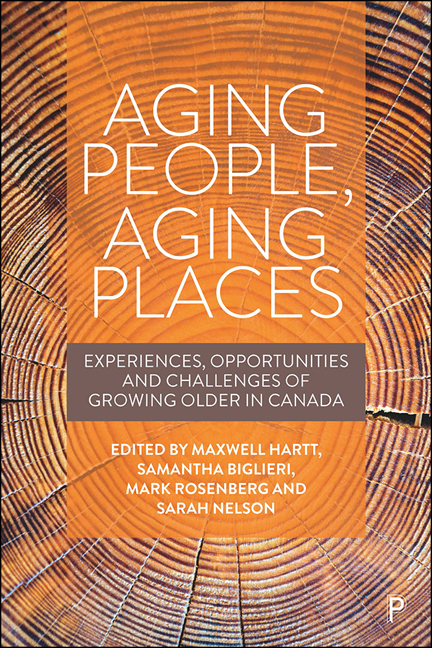13 - Rural community vignette
Published online by Cambridge University Press: 18 December 2021
Summary
There are a few things that you need to know to live well in rural Canada. These are true for all adults but becomes even more important as you age. First, you absolutely need a reliable vehicle. You need to know what to do and be prepared for emergencies, such as power outages, snowstorms, ice buildup, and vehicle and machine breakdowns. Luckily, in a rural area, you can depend on your neighbours for support. And in turn, you must be willing to share and offer up your own snowblower, lawn mower, rhubarb, or dishes for potlucks. You need to remember that everyone is related by marriage or were classmates (so keep your negative comments to yourself). Make sure to wave to everyone who drives by (two fingers off the steering wheel is the usual acknowledgement). Rural places are small, so you know the foibles of others and can (usually) deal with them. But because they are small, there is always anxiety that healthcare practitioners will leave the community. The small size of rural communities can also lead to social isolation, especially if you are new to the area. The saying goes that ‘residents are friendly but not welcoming’. Most people have their own social network and don't need to include you. Newcomers have to be forward to enter into existing groups; they need to be assertive in making friends, offering to join or create a group, or have children to ‘break the ice’ for them. The good news is that these networks are incredibly strong in rural areas. In our experience, rural women support each other particularly well and age very well as a result.
In this vignette, we share our observations and knowledge of aging experiences, challenges, and opportunities in two communities in rural New Brunswick. We will start with an overview of each community, followed by a summary of the unique barriers and opportunities to aging well in rural areas.
Charlotte County West, New Brunswick
Charlotte County West, New Brunswick, is aging. Young people are leaving for work, education, and better opportunities, and older people from across Canada are moving into the area to retire. The proportion of residents 65 years of age and older is 22% and growing.
- Type
- Chapter
- Information
- Aging People, Aging PlacesExperiences, Opportunities and Challenges of Growing Older in Canada, pp. 165 - 170Publisher: Bristol University PressPrint publication year: 2021

